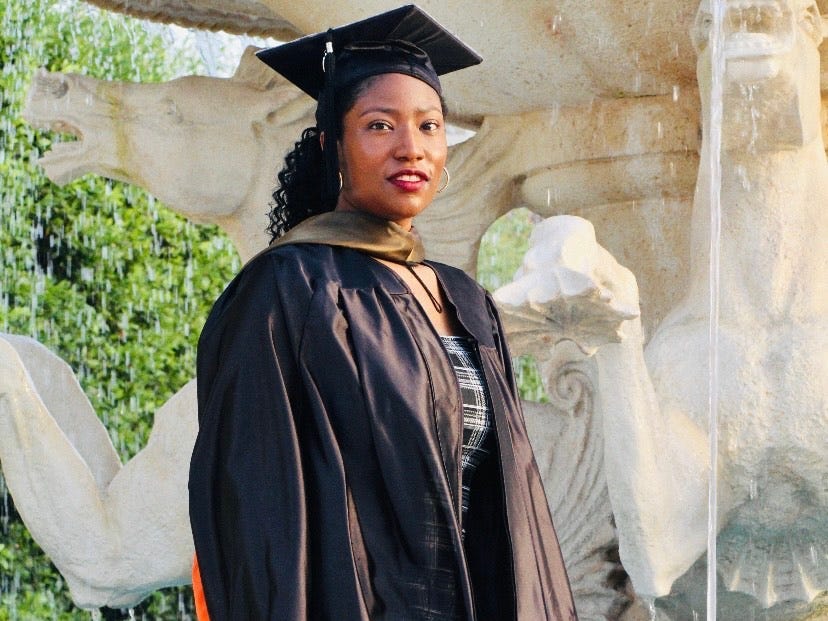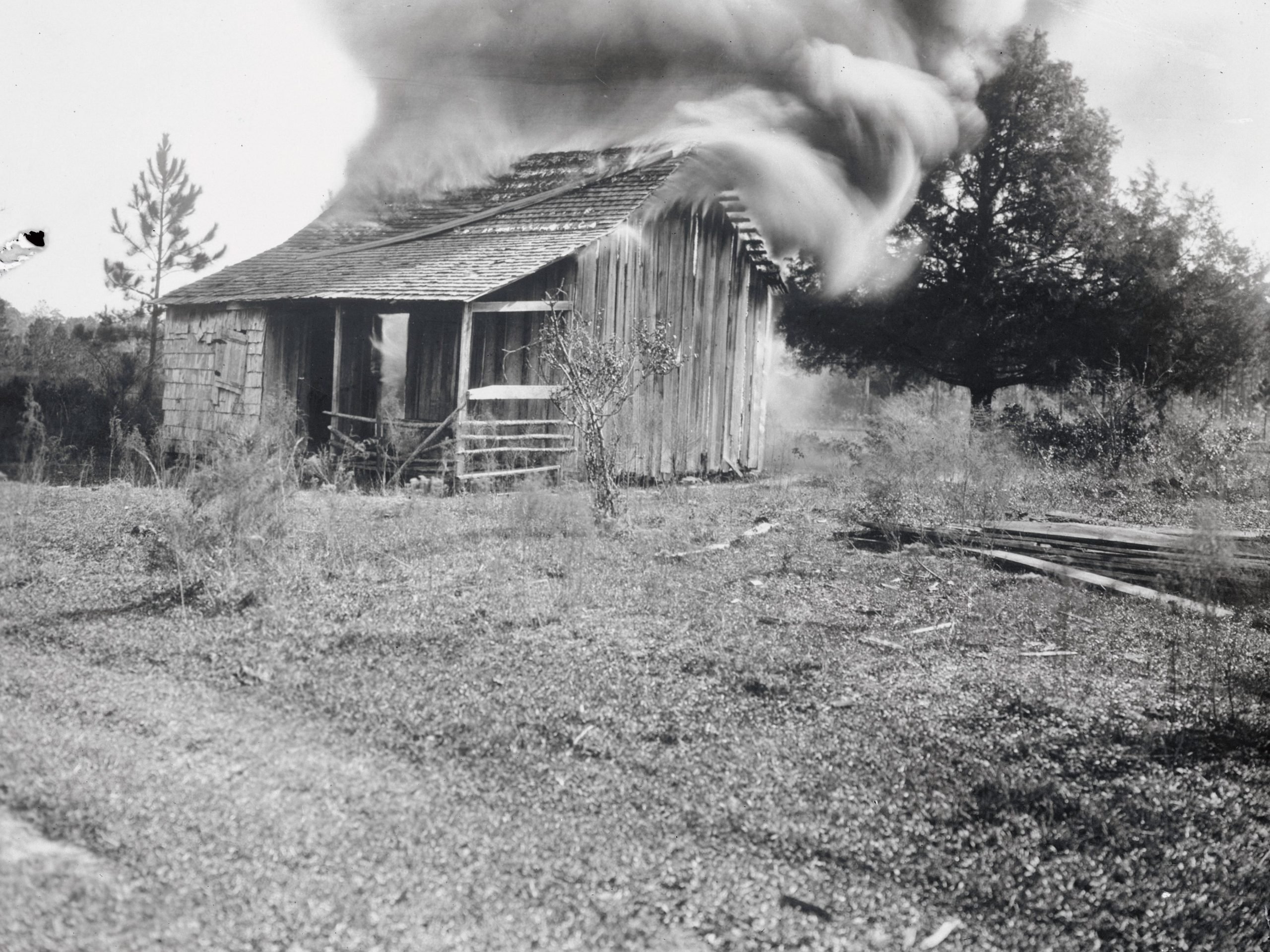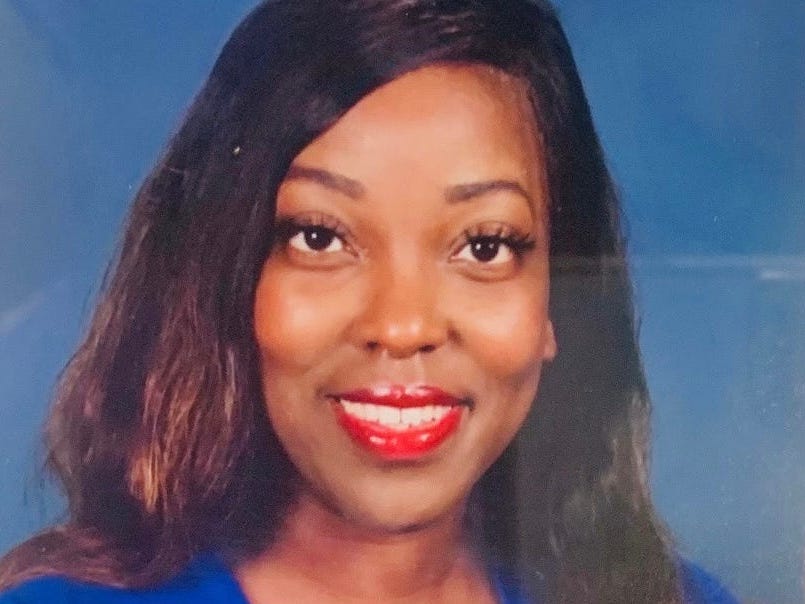
Courtesy of Breeana Larkins
- A Black community in Rosewood, Florida was destroyed by white vigilantes in January 1923.
- The survivors of the Rosewood massacre received reparations in 1994.
- Their descendants were able to attend college using funding from the reparations package.
- Visit Insider's homepage for more stories.
When Breeana Larkins was a teenager growing up in South Florida she learned a "life-changing" detail about her family tree. Her grandmother was a descendant of the 1923 Rosewood massacre.
On New Years Day 1923, just two years after the Tulsa Race Massacre, white vigilantes targeted and destroyed Rosewood, a tight-knit, majority Black community in Levy County, Florida. The terror attack – lasting over a week – started after a 22-year-old white woman accused a Black man of physically assaulting her in Sumner, Florida, according to a 1993 report. The surviving Black residents fled to nearby areas and did not return home.
"It wasn't anything that was introduced to me through my education," Larkins told Insider about the massacre. "It was taught from my family."

Before the massacre, Rosewood was a robust town with well-educated residents who lived in two-story homes and owned land and the residents were considered wealthy, Sherry Dupree a historian of the Rosewood Heritage Foundation told Insider.
"They were really another Black Wall Street that was taken out of existence because of their wealth," Dupree said, referring to Greenwood in Tulsa, Oklahoma. "That was why they were taken out because these other people could not stand to see Black folks living that way."
'A step in the right direction'
At the time of the massacre, the survivors were young and didn't speak about it for 20 to 30 years "other than in family hush-hush situations because of the fear," Dupree said. But in the 1980s they gathered for a family reunion in Florida. Then in 1994, Florida legislators passed a bill granting the survivors reparations.
"The total amount of reparations was 2.1 million, and it was to be given to family members who left Rosewood during the time of the Rosewood Massacre," Dupree said. "They had to have left during the time of the Rosewood Massacre."
The reparations package included an education fund for descendants.
"In order to receive it, I remember we had to submit my grandma's death certificate to (1) prove that, that's how we were related," Larkins said. "It definitely played a big role financially in me continuing my education."

Larkins used the money to cover part of her financial aid for college, she added.
According to Dupree, the survivors who received reparations weren't able to go on lavish trips with their money but used it for "survival," investing in healthcare, bills, their homes, and family members.
"They just didn't have a chance to enjoy it because most of them died the next few years," Dupree said.
In 1995 Willie Evans, one of the survivors compensated, told the Orlando Sentinel he used his money to renovate his home. Years later, his great-great-niece, Keri Miller, was able to receive the Rosewood scholarship when she was a student at Florida A&M University, a historically Black institution.
"Even though reparations will never give back what our family has experienced ... I feel like it's a step in the right direction," Miller said.
Reparations as a 'necessity'
Few groups in US history have received compensation. Among those who have are Japanese Americans who were put in internment camps during WWII, victims of the Tuskegee Syphilis Experiment, and Rosewood survivors.
A city in Illinois, Evanston, took a major step in reparations when it announced a plan to pay Black residents $10 million - $400,000 of which are earmarked for housing and mortgage assistance. In California, a task force was formed to study the impacts of slavery and "recommend appropriate remedies." Last month the three living survivors of the Tulsa race massacre continued their call for reparations 100 years after the historic event.
Larkins said that reparations are a "necessity" especially after what her grandmother's family went through.
"I think we all can look at history and see how Black people and other people of color and indigenous people included, how we have been basically put through hell," Larkins said.
"And I know some people say, well, that was the past, but the past really dictates the future," she continued." So I feel like it's a good thing for reparations to be given."
Dit artikel is oorspronkelijk verschenen op z24.nl